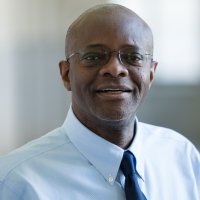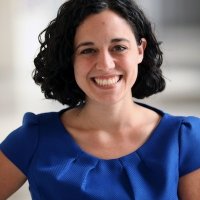Nigeria in Focus: An Assessment of the 2015 Elections
On April 7, 2015, the Woodrow Wilson Center Africa Program hosted a panel of experts to assess the outcome of the recent national elections in Nigeria, held on March 28 after a six-week postponement. In an historic election, opposition candidate Muhammadu Buhari of the All Progressive Congress Party (APC) defeated incumbent Goodluck Jonathan of the People’s Democratic Party (PDP).
The discussion addressed the following questions, among others: How accurate is the positive assessment of the elections? What contributed to these successes? What lessons can be drawn from these elections? And what can we expect from a Buhari presidency?
Dr. LeVan outlined five reasons for the success of the APC: popular discontent, the state of the economy, improved organization among the opposition, a demographic shift (10 million people were eligible to vote for the first time), and the credibility gap of the Jonathan administration on national security issues. He noted that security sector reform will be a “sleeping giant” for the next administration.
Dr. Vaughan followed with an analysis of the ethno-religious and ethno-regional fault lines that have often been oversimplified in discussions of the election results. Looking beyond the colors of the electoral map to examine actual percentages, Jonathan won more than 90 percent of the votes in several stronghold areas. Thus Buhari will have to be extremely “magnanimous” and seek to engage and accommodate those people and regions that did not vote for him.
Amb. Carson closed the panel with a strategic review of the elections and a discussion of the accomplishment it represents not only in Nigeria, but across the African continent. As Carson described, the election was fought and won on the basis of three issues that delegitimized President Jonathan: credibility, corruption, and security. Buhari has not inherited a silver chalice, however, and will have to quickly demonstrate his ability to manage and provide for a country with an enormous set of challenges.
Speakers

Alfred Sargent Lee and Mary Ames Lee Professor of Black Studies, Amherst College

Hosted By

Africa Program
The Africa Program works to address the most critical issues facing Africa and US-Africa relations, build mutually beneficial US-Africa relations, and enhance knowledge and understanding about Africa in the United States. The Program achieves its mission through in-depth research and analyses, public discussion, working groups, and briefings that bring together policymakers, practitioners, and subject matter experts to analyze and offer practical options for tackling key challenges in Africa and in US-Africa relations. Read more
